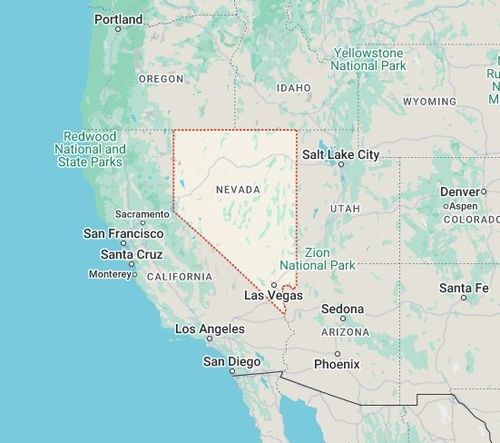Nevada bill aims to create SAF incentive fund

SOURCE: Google Maps
June 3, 2025
BY Erin Voegele
Legislation pending in Nevada aims to create a sustainable aviation fuel (SAF) incentive fund that would provide an incentive of $2.50 per gallon to domestic air carriers to support the purchase of SAF produced within the state.
The bill, AB 481, was introduced on March 24. An amended version of legislation was most recently addressed during a May 31 hearing held by the Assembly Ways and Means Committee.
An initial version of the bill included a two-tier incentive, including $1.75 per gallon for SAF produced outside of Nevada and $2.50 per gallon for SAF produced within the state. The legislation has since been amended to limit the incentive to fuel produced and used within the state.
To qualify for the incentive, the SAF must meet the definition of SAF established by the federal 40B SAF tax credit, which expired at the end of last year.
Advertisement
Advertisement
In addition to creating the SAF incentive program, SB 481 would allocate $10 million to a SAF incentive fund used to administer the program.
A full copy of the bill is available on the Nevada legislature website
Advertisement
Advertisement
Related Stories
The U.S. Energy Information Administration maintained its forecast for 2025 and 2026 biodiesel, renewable diesel and sustainable aviation fuel (SAF) production in its latest Short-Term Energy Outlook, released July 8.
XCF Global Inc. on July 10 shared its strategic plan to invest close to $1 billion in developing a network of SAF production facilities, expanding its U.S. footprint, and advancing its international growth strategy.
U.S. fuel ethanol capacity fell slightly in April, while biodiesel and renewable diesel capacity held steady, according to data released by the U.S. EIA on June 30. Feedstock consumption was down when compared to the previous month.
XCF Global Inc. on July 8 provided a production update on its flagship New Rise Reno facility, underscoring that the plant has successfully produced SAF, renewable diesel, and renewable naphtha during its initial ramp-up.
The U.S. EPA on July 8 hosted virtual public hearing to gather input on the agency’s recently released proposed rule to set 2026 and 2027 RFS RVOs. Members of the biofuel industry were among those to offer testimony during the event.
Upcoming Events










